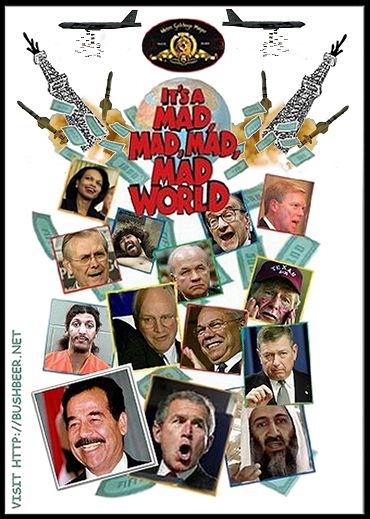Congress Will Return to Budget After Election
October 17, 2002
By CARL HULSE
WASHINGTON, Oct. 16 - Confronted with a budget impasse and an approaching election, Congress agreed tonight to finance government agencies until late November and put off much of an unfinished legislative agenda to a post-election lame-duck session.
The Republican-led House, defying Democratic critics, voted 228 to 172 to keep federal agencies running at current spending levels until Nov. 22, and the Democratic-led Senate quickly followed suit.
Representative Dick Armey of Texas, the majority leader, told lawmakers that the House was recessing and would return on Nov. 12 to try to break the legislative logjam. Senator Tom Daschle of South Dakota, the majority leader, suggested, on the other hand, that the Senate could remain in session into next week.
"There is still a lot that can be done and we are going to press forward," Mr. Daschle said, noting that he would push for votes on an extension of unemployment benefits and an increase in the minimum wage.
Mr. Armey cautioned House members that they could be called back with 48 hours' notice if the Senate was able to make progress on such issues as the creation of a Homeland Security Department.
"The House still waits on many important pieces of legislation," he said.
There was other pre-election finger-pointing as House Democrats accused Republicans of walking away from domestic spending and policy bills after devoting much of the past weeks to the debate over Iraq.
"This Congress has lost all claim to respectability," said Representative David R. Obey of Wisconsin, the senior Democrat on the Appropriations Committee. "It has lost all claim to go to the public and ask for another two-year
contract."
Republicans blamed Senate Democrats for inaction on many of the measures and said the House had fulfilled its obligations by passing its own initiatives on such subjects as health care and protecting workers' pensions.
"The House has acted," said Representative Nancy L. Johnson, Republican of Connecticut.
Republican House leaders emphasized that they were willing to return should the Senate pass the homeland security bill, or if negotiators reached agreement on an energy bill, terrorism insurance, a port security measure or other issues in talks between the House and Senate. Those issues, along with remaining spending bills and stalled nominations, could also be taken up in the post-election session.
"We are not pulling the plug," said John Feehery, a spokesman for Speaker J. Dennis Hastert. "We are making a practical decision that instead of sitting here twiddling our thumbs waiting for the Senate, we can put more pressure
on the Senate by getting our constituents involved." In the Senate, Democrats accepted the funding measure through an agreement with Republicans, though one Democratic leader said it was done reluctantly.
"This is not the right way to run government," the leader, Senator Harry Reid of Nevada, said.
The passage of what is known as a continuing resolution was made necessary by the inability of Congress to pass many of its spending bills this year. The Senate approved a record $355 billion defense spending measure today on a 93-to-1 vote, making it only the second of 13 required bills to be passed by both chambers and sent to President Bush. The House passed three other of the spending bills, and the Senate has passed one other spending bill.
Republicans in both the House and the Senate said the failure of the Senate to approve a budget this year threw the appropriations process into disarray, but Democrats say disputes among Republicans on spending levels derailed the
program.
House Republicans said they did not think they would be criticized by their constituents for bringing their work to a stop.
"I think we have a good defense in saying that if the Senate will pass something, we will come back," said Representative Porter J. Goss, Republican of Florida.
Representative Doc Hastings, Republican of Washington, said, "The other body, on many pieces of legislation, is behind us."
Some Republicans said the decision could be a political problem for lawmakers in tight House and Senate races who were hoping that Congress could provide some drought relief for farmers and ranchers.
Democrats said Republicans should be held accountable.
"It is a complete abdication of Congressional responsibility," said Representative Charles W. Stenholm, Democrat of Texas.
House Republicans also dropped their plan to bring up a package of tax breaks for investors and other economic provisions, including an extension of unemployment benefits for some workers.
The legislation, which had been scheduled to come up on the House floor today, was pulled after some Republicans in tight election races said they had other priorities, including the drought aid. Some moderate Republicans had
also been wary of voting on the tax provisions, which would largely benefit upper-income people, at a time when many low- and moderate-income people are being squeezed by the weak economy or are nervous about their jobs.
In the Senate, lawmakers also restored lapsed budget rules as leaders sought to avoid what they feared could become legislative guerrilla warfare.
Leaders of both parties backed the reinstatement for six months of what are known as budget enforcement rules. Under these restrictions, put in place in the early 1990's to try to force Congress to live within its means, bills that increase spending or cut taxes beyond levels allowed in the budget require 60 votes to waive the rules.
That 60-vote threshold has made it difficult for backers of costly new spending programs or tax cuts to get their way in the Senate, and some senators feared that lawmakers would try to bring such popular but expensive measures to the floor if the budget rules were gone for much longer.
"The most significant opportunity to save taxpayers money for the next fiscal year is this little resolution," said Senator Pete V. Domenici of New Mexico, the senior Republican on the Budget Committee.
Mr. Domenici introduced the legislation along with Senator Kent Conrad, the North Dakota Democrat who is chairman of the budget panel.









